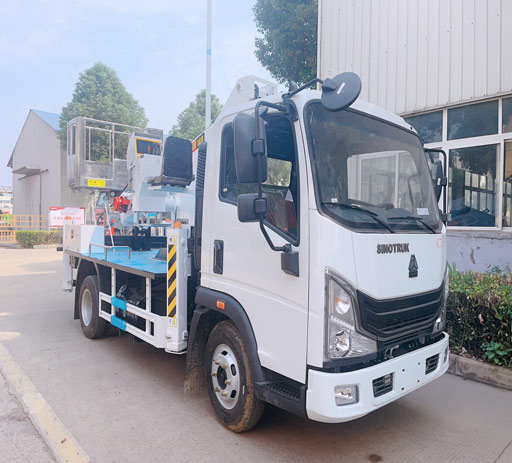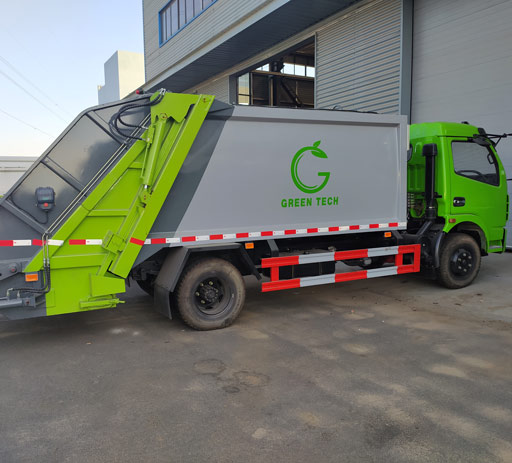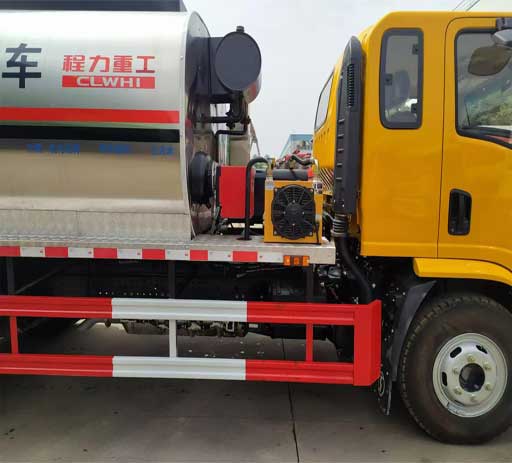Understanding Container Roll Off Services: A Complete Guide
Container roll off services have emerged as a popular solution for waste management and construction projects. This article aims to provide a comprehensive overview of container roll off services, including their benefits, types, and how to choose the right service for your needs. We’ll also cover some practical examples and tips to make the most of container roll off services, along with a FAQ section to address common queries.
What is a Container Roll Off?
A container roll off, also known simply as a roll-off, is a large, open-top container designed to hold waste materials. These containers are delivered to a job site by a specialized truck that rolls the container off its bed. Once the container is filled, the truck returns to pick it up and transport the waste to a landfill or recycling center.
Key Features of Container Roll Offs
- Durability and Size: Roll-off containers are constructed to withstand heavy loads and come in various sizes to meet different waste disposal needs.
- Open-Top Design: The open-top design allows for easy loading of oversized items, making it ideal for construction debris and bulky waste.
- Easy Access: These containers can be placed on-site, providing easy access for loading waste without the need for transport to a dump.
Benefits of Using Container Roll Off Services
Choosing container roll off services provides numerous advantages:
1. Efficiency
Container roll offs streamline the disposal process, allowing for quick loading and unloading. This means less time wasted transporting waste to disposal facilities.
2. Cost-Effective
Using a roll-off service can be more economical than multiple trips to the landfill. You pay a flat rate for the container instead of per trip charges.
3. Convenience
Container roll offs are delivered and picked up based on your schedule, increasing convenience for both residential and commercial projects.
4. Versatility
These containers can handle a wide range of materials, including construction debris, household junk, and yard waste, making them suitable for various projects.
Types of Container Roll Offs
Container roll offs come in different sizes and styles, catering to specific needs. The most common types include:
1. Construction Roll Offs
Typically used for construction sites, these containers can range from 10 to 40 yards in size and are designed to hold heavy materials like concrete and metal.
2. Residential Roll Offs
Smaller roll offs, often ranging from 10 to 20 yards, are ideal for home clean-outs and renovations. They can accommodate appliances, furniture, and general household junk.
3. Specialty Roll Offs
Some companies offer specialty containers for specific waste types, such as hazardous waste, e-waste, or organic materials, ensuring safe disposal according to regulations.
Choosing the Right Container Roll Off Service
Selecting the right roll-off service involves several considerations:
1. Assess Your Waste Type
Before renting a roll off, consider the type of waste you’ll be disposing of. Different containers are designed to handle various materials safely.
2. Determine the Size You Need
| Container Size (Yards) | Ideal Use |
|---|---|
| 10 | Small home renovations, garage cleanouts |
| 20 | Medium-sized construction projects, larger cleanouts |
| 30 | Major renovations, large-scale construction projects |
| 40 | Commercial construction, major demolition |
3. Research Local Providers
Look for container roll off services in your area. Compare prices, customer reviews, and available services to find the most reliable option.

4. Understand Pricing Structure
Ask about pricing and what’s included in the rental. Some companies charge a flat fee, while others may add fees for weight overages or extended rental periods.

5. Consider Delivery and Pickup Schedule
Coordinate the delivery and pickup times with your project timeline to prevent disruptions, especially during construction work.

Practical Examples of Container Roll Off Usage
Here are some scenarios where container roll off services are particularly beneficial:
1. Home Renovations
For a kitchen remodel, homeowners can rent a roll off to dispose of old cabinets, appliances, and construction debris, ensuring the space is clean and organized.
2. Landscaping Projects
During a landscaping overhaul, a roll-off container can be used to safely discard soil, branches, and other organic waste.
3. Estate Cleanouts
When clearing out a family home, a roll-off makes it easy to manage a large volume of mixed waste, from furniture to personal items.
4. Business Cleanouts
Businesses undergoing major overhauls or downsizing can utilize roll-offs to efficiently handle office furniture and equipment disposal.
Tips for Efficient Container Roll Off Use
To maximize the efficiency of your container roll-off, consider these tips:
1. Plan Ahead
Knowing what materials you’ll be placing in the container can help you choose the right size and type of roll-off, preventing overspending.
2. Sort Waste
Separate recyclable materials from regular waste to comply with local recycling regulations and potentially lower disposal costs.
3. Load Efficiently
When loading the container, place heavy items on the bottom and lighter items on top. This will prevent items from tumbling and make better use of space.
4. Adhere to Weight Limits
Pay attention to the weight limit of the container to avoid extra fees. If unsure, consult with your service provider for guidance.
Environmental Considerations
Understanding the environmental impact of waste disposal is crucial. Many container roll-off services are committed to recycling and responsible waste management.
1. Recycling Initiatives
Many companies sort through the waste collected to recycle materials like metal, glass, and concrete, contributing to reduced landfill waste.
2. Proper Disposal of Hazardous Waste
Always ensure that hazardous materials are handled appropriately. Many companies offer specialty containers for items like batteries, paints, and chemicals.
Container Roll Off Regulations
Local regulations surrounding waste disposal and roll-off services can vary. It’s vital to understand these regulations to avoid legal issues.
1. Permits
Some municipalities require permits for using roll-off containers on public property. Check with local authorities to ensure compliance.
2. Waste Disposal Regulations
Familiarize yourself with local waste management laws to ensure that you are disposing of materials appropriately and adhering to safety guidelines.
FAQs about Container Roll Off Services
1. How long can I keep the roll-off container?
Typically, rental periods range from a few days to several weeks. Check with your provider for specifics on extensions and fees.
2. Can I place hazardous materials in the roll-off container?
No, hazardous materials like batteries, chemicals, and paints require special handling. Contact your service provider for guidance on disposal options.
3. How is the cost calculated for a roll-off container?
Costs generally depend on the container size, rental duration, and type of waste. Some companies have flat fees, while others may charge per weight or additional disposal fees.
4. What if I exceed the weight limit of the container?
If you exceed the weight limit, you may incur additional fees. It’s important to check with your provider to know the exact limits and fees involved.
5. What types of projects are best suited for roll-off containers?
Container roll offs are perfect for construction projects, home renovations, large cleanouts, landscaping work, and commercial renovations.
6. How do I prepare for the delivery of a roll-off container?
Ensure that the delivery area is clear of obstacles and has enough space for the truck to maneuver easily. Providing access to your project site is crucial for seamless delivery and pickup.
